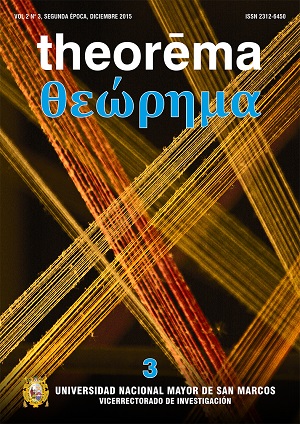Some experiences in biological mosquito vectors control
Keywords:
transmision, vector mosquitoes, metaxenic disseasesAbstract
Control of the transmission of diseases metaxenic, is mainly based on the elimination of the vector. For decades will come to applying irrationally chemical control causing irreversible ecological disorders by its cumulative power, it has been shown that vector control cannot be based solely on the chemical control. This has prompted the implementation of creative strategies to confront the problem of vector-borne diseases by applying appropriate measures, particularly those that cause less impact as biological control using natural enemies. This review presents some experiences with some biological controllers like the bacteria Bacillus sphaericus, nematode Romanomermis iyengari, larvivorous fish and the plant biocide Lonchocarpus utilis. All drivers have been validated in laboratory bioassays and field, whose results were determined to be specific, permanent and which do not produce pollution of the environment, so it is recommended its application as an alternative for the control of vector mosquitoes in situation of epidemic outbreaks.Downloads
Published
Issue
Section
License
Copyright (c) 2016 Julia Castro Hidalgo

This work is licensed under a Creative Commons Attribution-NonCommercial-ShareAlike 4.0 International License.

Theorema segunda época by Vicerrectorado de Investigación y Posgrado is licensed under a Creative Commons Reconocimiento-NoComercial-CompartirIgual 4.0 Internacional License.
Creado a partir de la obra en http://revistasinvestigacion.unmsm.edu.pe/index.php/Theo/index.
AUTHORS RETAIN THEIR RIGHTS:
a. Authors retain their trade mark rights and patent, and also on any process or procedure described in the article.
b. Authors retain their right to share, copy, distribute, perform and publicly communicate their article (eg, to place their article in an institutional repository or publish it in a book), with an acknowledgment of its initial publication in the Theorema segunda época.
c. Authors retain theirs right to make a subsequent publication of their work, to use the article or any part thereof (eg a compilation of his papers, lecture notes, thesis, or a book), always indicating the source of publication (the originator of the work, journal, volume, number and date).



